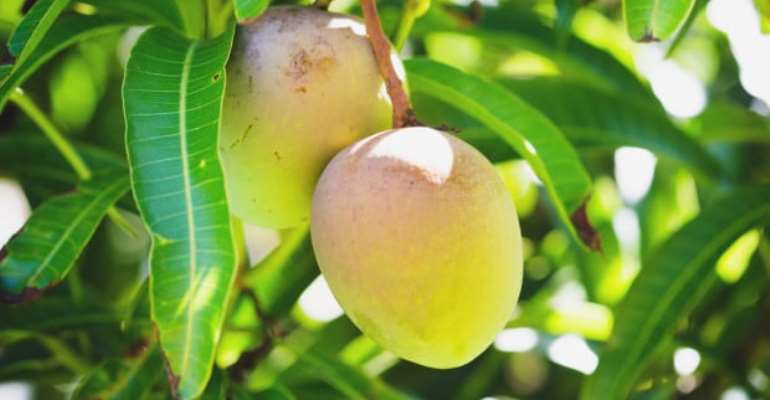
The name mango come from the Tamil word mangkay or mangay — however, when Portuguese traders arrived and settled in Western India, they embraced the name manga, which eventually gave way to the modern-day version of mango. Throughout history, every part of the mango — including the fruit itself, its skin, leaves, bark of its tree and even the pit — has been used as a health remedy in one form or another. But before diving headlong into all things “mango nutrition,” here’s more of a backdrop on the sweet and delicious mango.
The mango plant (Mangifera indica) is native to India and belongs to the family Anacardiaceae. The fruit is popular in cuisines across the globe, and leaves of the plant are packed with antioxidants. Mango leaves have been used in ayurvedic medicine throughout the Indian subcontinent for centuries. They have also been used in supplemental treatments of diabetes, as they contain significant stores of vitamins (including A, B, and C) and nutrients that are thought to be beneficial.
As the national fruit of India, Pakistan and the Philippines, as well as the national tree of Bangladesh, the mango fruit and its leaves are used ritually to decorate religious ceremonies, community festivals and celebrations as well as weddings. It should come as no surprise to note that many stories in Indian mythology mention the mango plant. In fact, Buddha is said to have meditated in a mango grove under the shade of a mango tree.
India holds the title of being the world’s major producer of mangos — with over 1,000 varieties of mangos available — although China, Mexico, Brazil and Thailand cultivate mangos as well. In the U.S., Florida is the chief producer of mangos.
Mangos are from the same family as pistachios and cashews. Likewise, mango trees can grow to great heights — anywhere from 65 to 100 feet tall. They can also live for extended periods of time. In fact, some mango trees have lived for more than 300 years and continue to bear fruit at such a ripe old age.
Types of Mangos
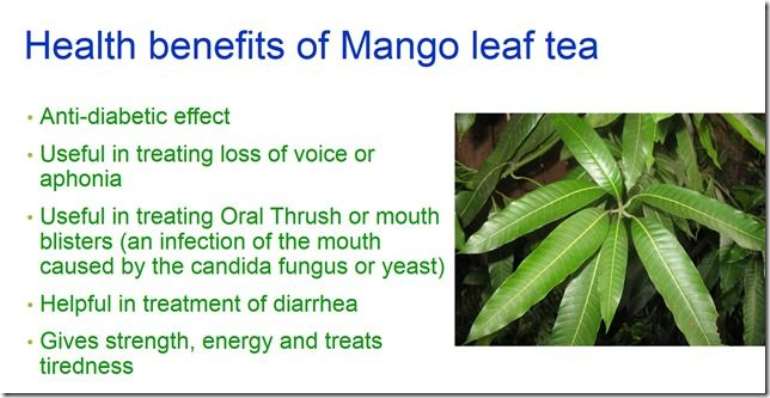
Not to be confused with a tropical American hummingbird going by the same name, the mango is an oval-shaped, creamy, juicy and fleshy tropical fruit. It is actually considered a drupe or stone fruit, meaning it has a characteristic outer fleshy part surrounding a shell (pit or stone) with a seed inside. Coconuts, cherries , plums, peaches, olives and dates are also drupes.
With a flavor often described as a cross between a peach and a pineapple — and like the benefit s of pineapple , providing well over 20 vitamins and minerals — the mango is the fruit of a large evergreen that grows almost exclusively in the tropics and sub-tropics. Mangos can vary in skin color — from green to red or yellow to orange — but the inner flesh of the mango is typically golden yellow.
Mango seeds traveled with humans from Asia to the Middle East, East Africa and South America in approximately 300 or 400 A.D. and were first cultivated in Malaysia, Eastern Asia as well as Eastern Africa, but Portuguese explorers introduced mangos to the people of Africa and Brazil.
The popularity of the mango has continued to grow and today, the mango currently hold the honor of being named the most widely consumed fruit in the world. And know this: In India, giving someone a basket of mangos is considered an act of friendship.
Mangos have long been used in traditional forms of medicine thanks to their healing properties and the extensive mango benefits that this stone fruit has to offer as well. In Ayurvedic medicine , the mango is believed to be very nourishing and thought to help promote proper elimination, soothe the throat and increase fluids in the body by creating moisture.
Meanwhile, in Traditional Chinese Medicine , mangos are used to strengthen digestion, build up bodily fluids and ease coughing. Mangos are also thought to increase the body’s inner heat, which can improve circulation and nourish qi, which is the vital energy of the organs.
Mango Nutrition Facts
Belonging to the flowering plant family Anacardiaceae and going by the scientific name Mangifera indica L., mangos are filled with vitamins, minerals, fiber and antioxidants. Each serving is also relatively low in mango calories, making it an incredibly healthy and nutrient-dense food . So which nutrients are present in mango?
One cup of raw mango fruit contains approximately :
- 107 calories
- 28 grams carbohydrates
- 1 gram protein
- 0.4 gram fat
- 3 grams dietary fiber
- 45.7 milligrams vitamin C (76 percent DV)
- 1,262 international units vitamin A (25 percent DV)
- 0.2 milligram vitamin B6 (11 percent DV)
- 1.8 milligram vitamin E (9 percent DV)
- 6.9 micrograms vitamin K (9 percent DV)
- 0.2 milligram copper (9 percent DV)
- 257 milligrams potassium (7 percent DV)
- 23.1 micrograms folate (6 percent DV)
- 0.1 milligram riboflavin (6 percent DV)
- 0.1 milligram thiamine (6 percent DV)
In addition to the nutrients listed above, the mango nutrition profile also contains a small amount of niacin, magnesium and pantothenic acid — as well as powerful antioxidants like zeaxanthin, quercetin , astragalin and beta-carotene.
Mango Nutrition: Top 11 Mango Benefits
- Lowers Blood Sugar Levels
- Regulates Blood Pressure
- Boosts Brain Health
- May Protect Against Macular Degeneration
- Supports Strong Bones
- Optimizes Heart Health
- Combats Cancer Cell Growth
- Slows Signs of Aging
- Increases Immune Function
- Improves Digestive Health
Studies:
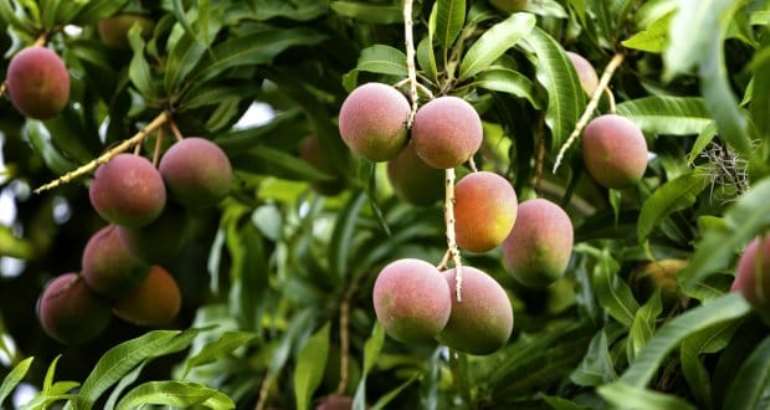
A 2010 study by K. A. Shah, M. B. Patel, R. J. Patel, and P. K. Parmar published in the journal Pharmacology Review explains, “According to ayurveda, varied medicinal properties are attributed to different parts of mango tree.” The research concludes, “Studies indicate mango possesses antidiabetic, anti-oxidant, anti-viral, cardiotonic, hypotensive, anti-inflammatory properties,” and suggests additional research and further study to confirm the initial encouraging findings, which include the lowering of blood pressure and the management of diabetes. Mango leaves, which don’t always seem as appetizing as a juicy mango fruit, are now popularly consumed by preparing tea using mango leaf extract. Mango leaf tea can be found online, and fresh mango leaves can also be purchased online or in organic markets
1. Lowers Blood Sugar Levels
Rich in fiber plus an array of power-packed antioxidants, adding mango to your diet can have a big impact on blood sugar levels. For example, one study out of Oklahoma titled Mango Supplementation Improves Blood Glucose in Obese Individuals by Evans et al 2014 published in the Nutrition and Metabolic Insights actually found that supplementing with mango for 12 weeks significantly reduced blood sugar levels in obese adults. This pilot study examined the effects of freeze-dried mango (Mangifera indica L.) supplementation on anthropometrics, body composition, and biochemical parameters in obese individuals.
The fiber in mangos may also help promote normal blood sugar levels as stated in one article published by Jillian Levy, 2017 titled How to Maintain Normal Blood Sugar.
Fiber passes through the gastrointestinal tract undigested, slowing the absorption of sugar in the process as revealed in a study titled Effects of Dietary Fiber and Its Components on Metabolic Health by James M. Lattimer and Mark D. Haub published in the journal Nutrients 2010. With three grams, or up to 12 percent of your daily fiber needs, in a single serving, enjoying mangos as part of a well-rounded healthy diet can support overall glycemic control.
2. Regulates Blood Pressure
Sometimes called “the silent killer,” high blood pressure affects an estimated 70 million American adults , and about one in five is completely unaware that he or she has it. High blood pressure places extra strain on the heart, forcing it to work harder to pump blood throughout the body so it can continue to work efficiently.
Mangos are rich in magnesium and potassium, which are two essential nutrients that are absolutely vital when it comes to regulating blood pressure as proven by Houston MC 1, Harper KJ 2008 study titled Potassium, magnesium, and calcium: their role in both the cause and treatment of hypertension published in the journal Clinical Hypertension(Greenwich). Plus, they’re also naturally low in sodium, a micronutrient that should be limited in those with high blood pressure according to one article titled Dietary Salt Intake and Hypertension authored Sung Kyu Ha , M.D, in the journal Electrolytes and Blood Pressure.
3. Boosts Brain Health
Considered one of the best brain foods by Dr. Axe, mango nutrition is packed with vitamin B6 , which is essential for maintaining brain function. In fact, some research suggests that a deficiency in this key vitamin could contribute to impaired cognitive function and neurological decline. This study Vitamin B6 status, deficiency and its consequences–an overview was published in the journal Nutrition Hospital by Spinneker et al 2007. Vitamin B6 and other B vitamins are also crucial for maintaining the function of brain neurotransmitters and aid in supporting a healthy mood as well as regular sleep patterns. The study was also authored by David O. Kennedy titled B Vitamins and the Brain: Mechanisms, Dose and Efficacy—A Review in the journal Nutrients.
4. May Protect Against Macular Degeneration
Age-related macular degeneration is a common condition that causes destruction of the macula, the part of the eye that provides sharp, central vision. It can lead to night blindness, blurry, distorted vision and even blindness.
In addition to the wealth of vitamins and minerals supplied by the mango nutrition profile, this powerful fruit also contains the antioxidant zeaxanthin. Zeaxanthin works to filter out harmful blue light rays, thereby playing a protective role in eye health as well as possibly preventing macular degeneration symptoms. Studies Carpentier S and Knaus M , Suh M 2009 titled Associations between lutein, zeaxanthin, and age-related macular degeneration: an overview published in the journal Crit Rev Food Sci Nutr. The study revealed that increasing your intake of key antioxidants like zeaxanthin can help increase macular pigment density to preserve vision and prevent macular degeneration.
5. Supports Strong Bones
Mangos are an excellent source of bone-building vitamin K , cramming in up to 9 percent of your daily needs in just one cup. This important nutrient is involved in bone metabolism and helps maintain adequate amounts of calcium in the bone tissue. Interestingly enough, a study published in the American Journal of Clinical Nutrition titled Vitamin K intake and bone mineral density in women and men by Booth et al 2003 actually found that a vitamin K deficiency may be associated with lower bone density and an increased risk of fractures.
6. Optimizes Heart Health
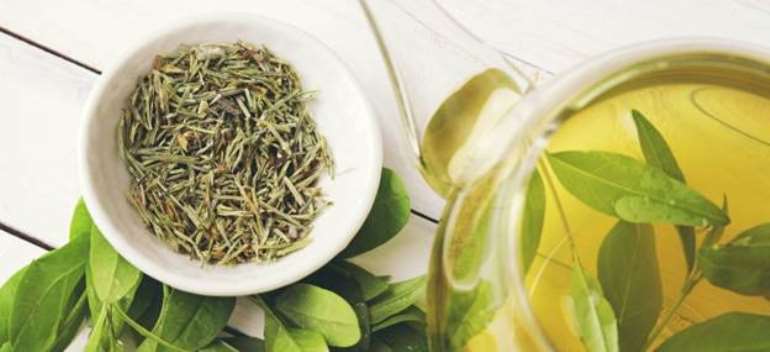
Heart disease is a major problem in the United States and around the world, accounting for an estimated 31.5 percent of global deaths in 2013. Fortunately, switching up your diet and adding more nutrient-rich foods like mango to your menu may help optimize heart health to protect against heart disease.
Mangos contain high amounts of pectin , a type of soluble fiber that can help naturally lower cholesterol levels in the blood. Combined with the low sodium levels as well as high amounts of potassium and B vitamins, mango nutrition may help keep your heart healthy and reduce the risk of heart disease.
7. Combats Cancer Cell Growth
As previously mentioned, mangos are high in pectin. Pectin not only helps lower cholesterol levels in the blood, but may also guard against prostate cancer, according to some in vitro studies titled Modified citrus pectin anti-metastatic properties: one bullet, multiple targets by Vladislav V. Glinsky and Avraham Raz 2010 published in the journal Carbohydr Res . A compound within pectin combines with galectin-3, a protein that plays a role in inflammation and cancer progression. Additionally, high dietary intakes of vitamin C and beta-carotene , an antioxidant found within the mango, have also been linked to increased survival rates in men with prostate cancer. the study was conducted by Daviglus et al 1996 Titled Dietary beta-carotene, vitamin C, and risk of prostate cancer: results from the Western Electric Study and published in the journal Epidemiology.
Another , one in vitro study conducted by the University of Queensland even found that extracts of mango flesh and peels were effective at blocking the growth of breast cancer cells as well. The study titled Bioactivity of mango flesh and peel extracts on peroxisome proliferator-activated receptor γ [PPARγ] activation and MCF-7 cell proliferation: fraction and fruit variability authored by Wilkinson et al 2011 was published in the journal Food Science
Although research is still in the early stages, this suggests that mangos may be a helpful part of natural cancer treatment protocol.
8. Slows Signs of Aging
Mangos are jam-packed with several anti-aging nutrients that can help slow the signs of aging to keep you looking youthful for as long as possible.
In particular, mangos are rich in vitamin A , a micronutrient that helps promote tissue repair and is often used topically to fight wrinkles and skin aging . This study was conducted by Kafi et al 2007 titled Improvement of naturally aged skin with vitamin A (retinol) published in the journal Arch Dermatology. This study was a Randomized, double-blind, vehicle-controlled, left and right arm comparison study.
The population comprised 36 elderly subjects (mean age, 87 years), residing in 2 senior citizen facilities.Topical 0.4% retinol lotion or its vehicle was applied at each visit by study personnel to either the right or the left arm, up to 3 times a week for 24 weeks.
They’re also loaded with vitamin C, an antioxidant that protects against oxidative damage and boosts the production of collagen . Collagen is a type of protein that can slow signs of aging by reducing joint pain according to Bello AE and Oesser S 2006 in a study titled Collagen hydrolysate for the treatment of osteoarthritis and other joint disorders: a review of the literature published in the journal Curr Med Res Opin. and preserving skin elasticity according to a study by Proksch et al 2014 titled Oral supplementation of specific collagen peptides has beneficial effects on human skin physiology: a double-blind, placebo-controlled study published in the journal Skin Pharmacology Physiology.
9. Increases Immune Function
Your immune system is your body’s first line of defense against unwanted invaders and has everything to do with keeping you healthy and feeling your best. Squeezing in about 76 percent of the vitamin C you need for an entire day, mangos can help support a healthy immune system to ward off illness and infection.
A study conducted by Wintergerst et al 2006 titled Immune-enhancing role of vitamin C and zinc and effect on clinical conditions published in the Annals of Nutrition & Metabolism actually found that getting enough vitamin C in your diet could help reduce the duration and severity of respiratory infections like the common cold, plus decrease the incidence of other conditions, such as malaria, pneumonia and diarrhea infections.
10. Improves Digestive Health
With three grams of fiber in a single cup of fresh mango nutrition, adding this nutritious fruit to your daily diet can do wonders when it comes to the health of your digestive tract. Fiber can help add bulk to the stool to increase stool frequency in people with constipation according to one study by Jang et al 2012 titled Effect of dietary fiber on constipation: A meta analysis. High-fiber foods like the mango may also help protect against other gastrointestinal conditions according to Anderson et al 2009 in a study titled Health benefits of dietary fiber published in the journal Nutition Rev, including hemorrhoids , GERD, intestinal ulcers and diverticulitis.
11. May Protect Against Asthma
As you may recall from the mango nutrition lineup, mangos are chock-full of beta-carotene and vitamin A. Due to this, it could potentially act as an asthma natural remedy . Asthma occurs as a result of inflammation in air passages, resulting in temporary narrowing of airways transporting air from the nose and mouth to the lungs. This leads to difficulty breathing, wheezing, coughing, chest tightness or even death.
Studies by Al Senaidy AM 2009 titled Serum vitamin A and beta-carotene levels in children with asthma show that levels of vitamin A and beta-carotene may be lower in children with asthma. This study included 433 asthmatic schoolchildren and 537 healthy control subjects, between 6 and 18 years of age. Serum beta-carotene, vitamin A, cholesterol, and triglycerides levels were studied in all subjects.
Although it’s unclear exactly what role these essential nutrients may play, these findings indicate that they may have some impact on allergic diseases, such as asthma.
Mango vs. Papaya
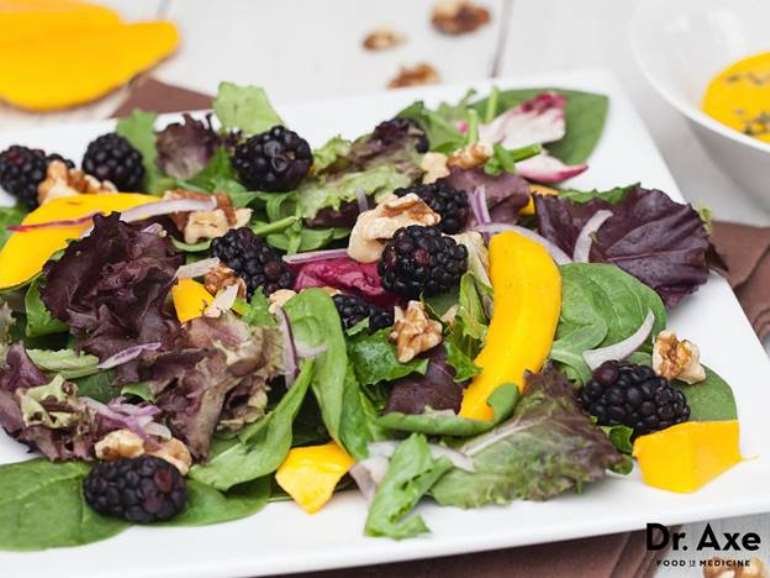
The mango and papaya are two types of tropical fruit that have garnered a good amount of popularity for their delicious taste and versatility. When it comes to nutrition, both are considered incredibly nutrient-rich ingredients. In a single cup, papaya packs in more vitamin C, vitamin A and folate, but the same amount of mango is higher in fiber, vitamin B6 and vitamin E.
Precautions
Although there are plenty of benefits of mango, there are some downsides that need to be considered as well.
Since mangos are of the same family as pistachios or cashews, if you have an allergy to these nuts, then you should probably avoid mangos. Additionally, mangos are also very distant relatives of poison ivy, so some people may be sensitive to them. Some people with latex allergies have also had a cross-reaction to mangos, so use caution and be sure to address any concerns with your doctor.
Many people also wonder: Can you eat mango skin? Mangos and their peels contain tiny amounts of urushinol, which can trigger dermatitis in those sensitive to it and may also cause food allergy symptoms like itching, burning and swelling of the skin, so it’s best to avoid the skin whenever possible.
Finally, keep in mind that there are a relatively high amount of calories in mango compared to other fruits, so don’t gorge on more than one at a time. Instead, have a great dessert finish to a healthy meal, or mix with some protein (like goat milk or coconut milk ) for breakfast or enjoy alongside some whey protein for a snack.
Final Thoughts on Mango Nutrition
- The mango is a delicious tropical fruit that is native to South Asia and enjoyed for its sweet flavor and extensive nutrient profile.
- Each serving of fresh fruit contains a relatively low amount of mango calories, plus plenty of fiber, vitamin C, vitamin A and vitamin B6.
- What are the benefits of eating mango? Thanks to its impressive nutritional content, potential mango nutritional benefits include lower blood pressure and blood sugar levels, improved heart and brain health, increased immune function, decreased signs of aging, better digestive health, and more.
- You can eat mangos as is for a guilt-free sweet treat or try adding them to smoothies, fruit salads, savory salsas or even tacos.
- Enjoy this tasty stone fruit as part of a well-balanced, nutritious diet to maximize the potential benefits and help improve your overall health.
Disclaimer: As pertains to all my previous articles, they are for educational purposes and not to be use as substitute to medical advice.
Dr. Raphael Nyarkotey Obu, PhD, Is an honorary Professor of Naturopathic Medicine with research interest in Naturopathic & Holistic Urology, Vinnytsia State Pedagogical University, Ukraine. President of Nyarkotey College of Holistic Medicine- Formulated of FDA approved Men’s Formula for Prostate Health, Women’s Formula for wellness & Nyarkotey Tea for cardiovascular Health. 0241083423 or 0541234556




